Promoter Frank Warren has few qualms about the fact that a convicted drug cheat will be featured on one of the most publicized cards of the year.
The Queensberry Promotions founder is helping oversee this Saturday’s card in Riyadh, Saudi Arabia, featuring Anthony Joshua in the main event against Otto Wallin, as well as a slew of other intriguing heavyweight bouts, including Deontay Wilder against Joseph Parker and Miller against Daniel Dubois.
The choice of Miller, on a show that organizers have breathlessly called the most impressive in years, raised eyebrows because the gabby Brooklynite has a well-documented history of cheating via steroids.
But Warren said he is not conflicted about Miller mainly because Miller had gone through the existing protocols with a state commission and served a suspension.
“I’m not policing the sport,” Warren told Boxing Social. “That’s not my job. I promote fights, I promote guys who are licensed. If they’re unlicensed and the commission finds him unfit to box then obviously, we won’t even approach them or bother to use them, especially for failing drug tests and so forth. But he is licensed and has served his sentence. Gone through the process. He was a drugs cheat, got caught, and now he’s clean, or at least he has been in all the tests leading up to this fight. I hope he will continue to do that in his future career.”
Miller, 35, was suspended by the Nevada State Athletic Commission in July 2020, after he tested positive for a banned substance ahead of a scheduled heavyweight showdown with Jerry Forest in Las Vegas. Two years later, the commission lifted Miller’s suspension, allowing him to fight in Nevada and the rest of the United States.
Miller (26-0-1 22 KOs) was involved in a far more scandalous cheating scenario in the summer of 2019, when he was supposed to fight Anthony Joshua at New York City’s Madison Square Garden, but that matchup was famously nixed after Miller tested positive for several banned performance-enhancing drugs. Joshua would go on to get stopped by late replacement Andy Ruiz. Because Miller was not licensed by the New York State Athletic Commission when he failed those tests, he did not serve a suspension under that state; nonetheless, most reputable state commissions recognize edicts put down by their peers.
By way of comparison, Warren took aim at Conor Benn, the British welterweight who failed two tests last year for the same banned performance-enhancing drug clomifene. Benn, who is promoted by Warren’s rival Eddie Hearn, has continually maintained his innocence and has largely refused to cooperate with the British equivalent of a US state commission, the British Boxing Board of Control.
Benn took advantage of the lax and fragmented regulations governing pro boxing by fighting in Orlando, Florida, earlier in the fall, against Rodolfo Orozco, in what was Benn’s first fight in nearly 18 months; Benn wound up winning a decision. Unlike other jurisdictions in the United States, which recognized the BBBofC’s ongoing quarrel with Benn, the Florida commission was willing to greenlight Benn’s return.
“Miller’s done what Conor Benn hasn’t done,” Warren said. “He’s gone before the commission, had a hearing and on the strength of that was banned from boxing. Was given a punishment and he served the punishment and that’s what life should be about.
“Like you do something wrong and you go to prison, and you come out and wipe the slate clean. That’s how life is supposed to be. If he does it again then I’m sure he’ll get a massive ban, probably would be out of the sport forever. That’s where we are and that’s what happened and that’s why he’s on the card.”
Benn was slapped with a suspension earlier in the year, but it was lifted by an independent panel. The BBBofC and UK Anti-Doping appealed that decision. A resolution is expected sometime early next year.
Sean Nam is the author of Murder on Federal Street: Tyrone Everett, the Black Mafia, and the Last Golden Age of Philadelphia Boxing.







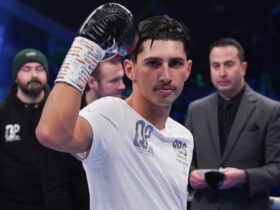

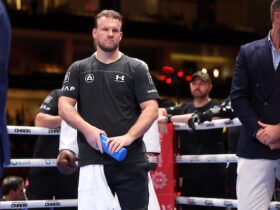

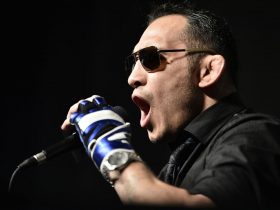


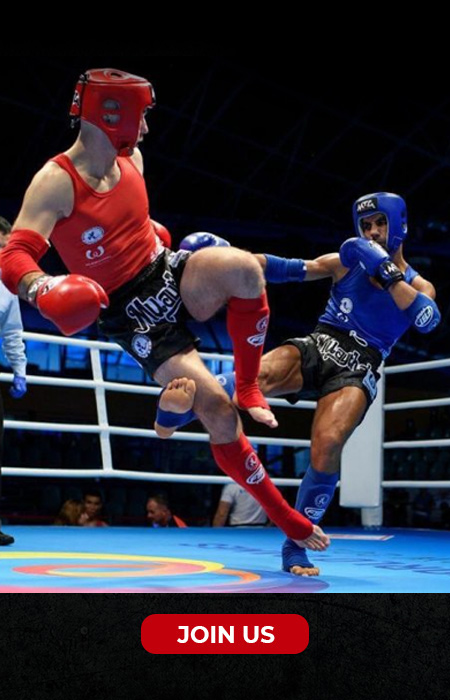
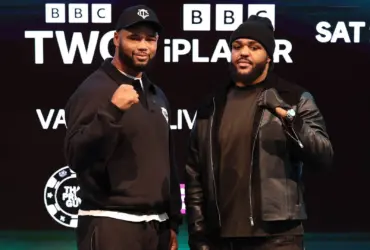



Leave a Reply